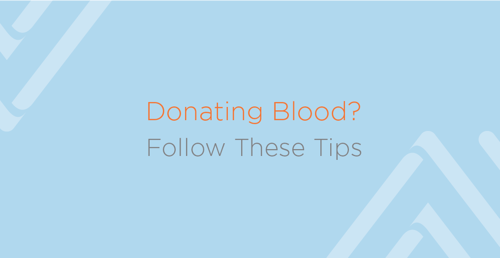National Blood Donor Month has been observed every January since 1970 to try to increase blood and platelet donations when cold weather and illness make it most difficult to meet patient needs.
When giving blood, there are guidelines to follow: Eat plenty of iron, stay hydrated, get adequate sleep, stay off certain medications, etc. You’ll likely get a list of these from your blood donation facility to help make your visit safe and your blood donatable. But often they skip advice that can make your experience more pleasant on an emotional level.
Here are some lesser-known tips that can help improve your blood donation experience.

Bring some entertainment.
Having something to preoccupy you before, during and after donating can help ease your nerves (and quite frankly, prevent boredom). Bring your headphones to listen to music or an audiobook.
And two forms of ID.
Requirements vary by facility but most require two forms. Your driver's license, social security card, passport or blood donor card (if you have one) are acceptable.
Skip your workout without the guilt.
It’s advised not to do strenuous physical activity on the day you donate. But what you might not realize is that donating blood can burn up to 650 calories—the equivalent of an intense gym session. So skip the gym and the guilt. (Source)
Don’t chew gum.
Fresh breath can wait. Chewing on gum or candy can increase the temperature in your mouth, which can result in a false temperature reading that makes it appear you have a fever and are ineligible to donate. (Source)
Thank your phlebotomist.
Phlebotomy technicians offer compassionate care and help patients and donors feel safe and at ease. Take a minute to let your phlebotomist know you appreciate them — a little recognition goes a long way.
Donating blood is a wonderful way to give back. You’ll walk away with more than an “I gave blood” sticker and free refreshments — you’ll have the knowledge that you helped save a life.

